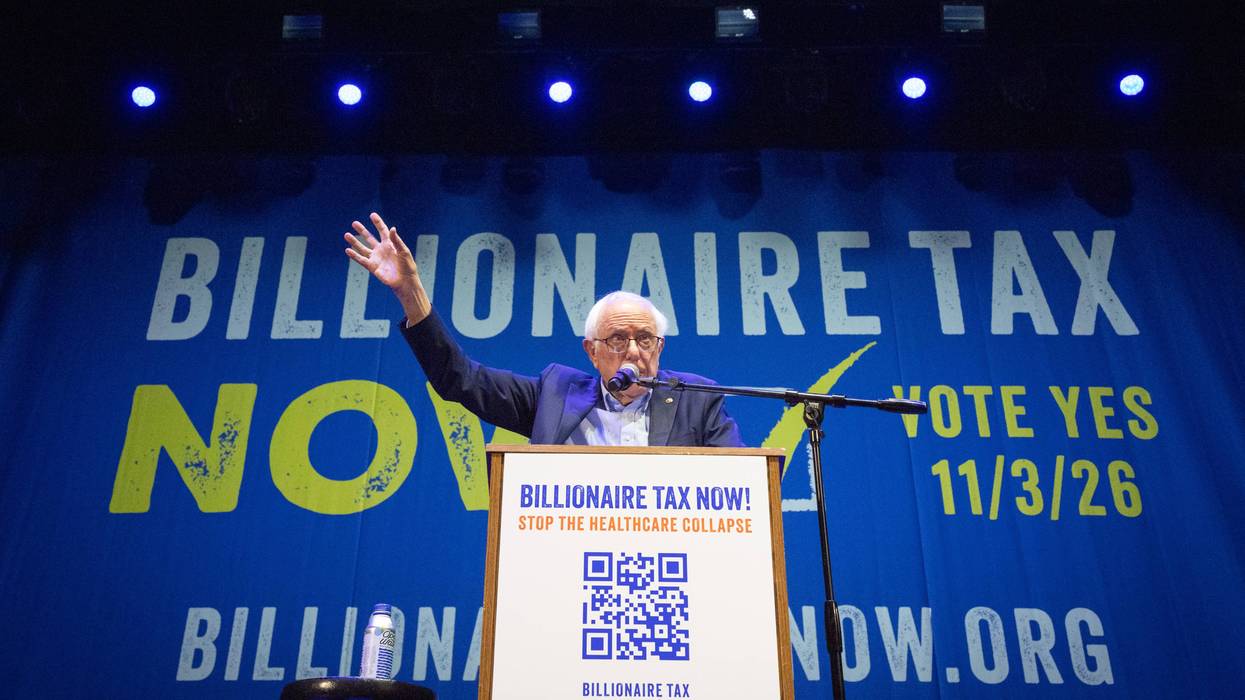'This Is Not a Drill': Ad Promoting California Billionaire Tax Airs During Olympics
"Massive federal funding cuts will shut hospitals and emergency rooms forever because billionaires refuse to pay their fair share."
Organizers behind a proposed billionaire wealth tax in California aired their first campaign advertisement on the final day of the 2026 Winter Olympics over the weekend, styling the 30-second spot as an emergency alert warning of a looming healthcare catastrophe in the Golden State.
"This is not a drill," the ad says. "California healthcare is facing an emergency. Hospitals will close. Expect longer wait times and overcrowded emergency rooms. Massive federal funding cuts will shut hospitals and emergency rooms forever because billionaires refuse to pay their fair share. Prepare to make alternative plans for care, or vote yes to make billionaires pay their fair share."
Watch the ad:
The advertisement aired days after US Sen. Bernie Sanders (I-Vt.) headlined an event formally launching the push to get the proposed billionaire wealth tax on the California ballot in November amid intense opposition from the state's Democratic governor, Gavin Newsom, and some of its wealthiest residents.
If enacted, billionaires residing in California as of the start of 2026 would face a one-time 5% tax on their fortunes, and the revenue—around $100 billion, according to supporters—would go toward counteracting the impacts of federal cuts to Medicaid and nutrition assistance approved last summer by congressional Republicans and President Donald Trump. Proponents of the billionaire tax note that more than 3 million Californians could lose healthcare coverage if the state doesn't act.
Suzanne Jimenez, chief of staff at Service Employees International Union-United Healthcare Workers West, which is leading the campaign for the wealth tax, said the new ad "underscores the choice California faces—more tax breaks for billionaires, or keeping our hospitals open."
"It’s important to alert as many Californians as possible to the healthcare collapse that is looming, because it’s preventable if billionaires pay something closer to their fair share,” Jimenez added.


